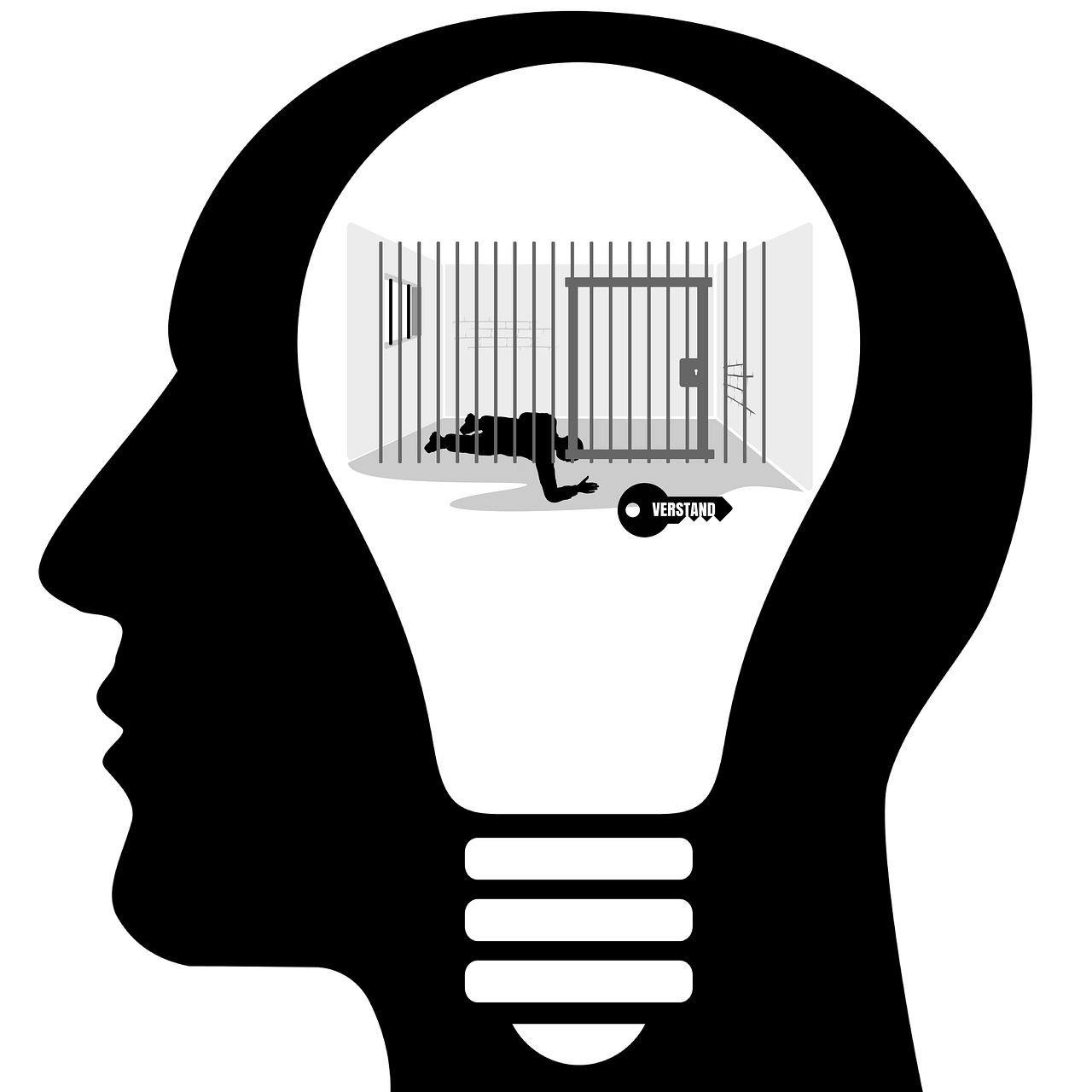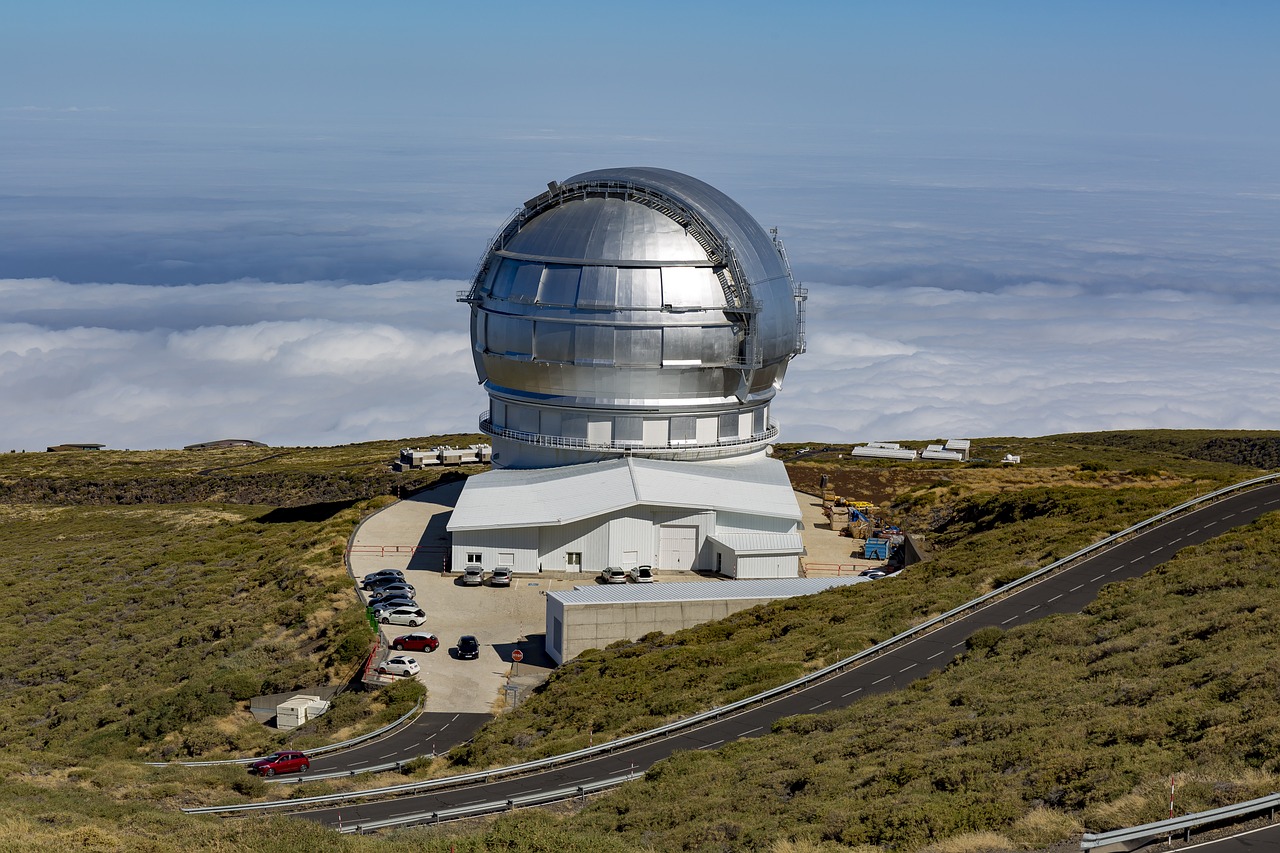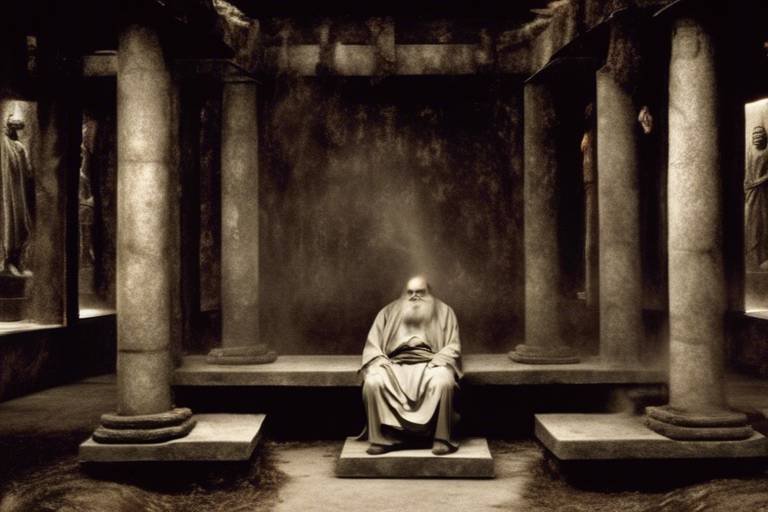Dissecting the Theory of Everything Through Ontology
Have you ever pondered the *mysteries of existence*? The quest to understand the universe and our place within it has captivated thinkers for centuries. At the heart of this exploration lies the intersection of ontology and the Theory of Everything (ToE). But what exactly do these terms mean, and how do they relate to each other? In this article, we will embark on a journey to uncover how ontology can illuminate the Theory of Everything, bridging the gaps between philosophy, physics, and metaphysics, while offering profound insights into the fundamental nature of reality.
Ontology, the philosophical study of being and existence, serves as a foundational pillar in our quest for understanding. It examines the categories of being and their relationships, prompting us to ask questions like: What does it mean to exist? How do different entities interact? These inquiries are not just academic; they shape our worldview and influence various disciplines, including science, philosophy, and even art. By dissecting the Theory of Everything through the lens of ontology, we can gain a deeper appreciation of the complexities of existence.
The Theory of Everything aims to unify all fundamental forces of nature into a single framework. Imagine a grand tapestry, intricately woven together, where every thread represents a different force or particle. This ambitious goal has profound implications for our understanding of the universe. However, the path to this unification is fraught with challenges. Physicists grapple with the intricacies of quantum mechanics and relativity, trying to reconcile these seemingly disparate realms of knowledge. Herein lies the beauty of ontology; it provides a philosophical backdrop against which these scientific endeavors can be examined and understood.
As we dive deeper into the interplay between ontology and the Theory of Everything, we will explore how physics informs ontological debates. For instance, consider the implications of quantum mechanics. Concepts like superposition and entanglement challenge our classical notions of reality, raising questions about the very fabric of existence. Is reality deterministic, or is it inherently probabilistic? Similarly, Einstein's theory of relativity reshapes our understanding of space and time, compelling us to rethink the nature of these fundamental constructs. Through these explorations, ontology emerges as a vital tool for navigating the complexities of the universe.
In the following sections, we will delve into the philosophical implications of the Theory of Everything, examining how it poses significant questions regarding existence and knowledge. We will also address the challenges that arise in unifying physics and ontology, considering the metaphysical assumptions that underpin scientific theories. Ultimately, this journey will illuminate the future of ontology in relation to physics, offering a glimpse into potential developments that may reshape our understanding of existence itself.
- What is ontology?
Ontology is the philosophical study of being and existence, focusing on categories of being and their relationships. - What is the Theory of Everything?
The Theory of Everything aims to unify all fundamental forces of nature into a single framework. - How do physics and ontology intersect?
Physics and ontology intersect in their pursuit of understanding existence, with physical theories informing ontological debates. - What are some challenges in unifying physics and ontology?
Challenges include addressing metaphysical assumptions in scientific theories and reconciling different conceptual frameworks. - What is the future of ontology in physics?
The future is promising yet complex, with potential developments that may reshape our understanding of existence.

Understanding Ontology
Ontology, at its core, is the philosophical study of being and existence. It delves into the very fabric of what it means to be, exploring the categories of being and their intricate relationships. Think of ontology as a map of reality, guiding us through the complex terrain of existence. This discipline is not merely an abstract concept; it has profound implications across various fields, including philosophy, physics, and even metaphysics.
In philosophy, ontology shapes our understanding of what entities exist in the universe and how they relate to one another. For instance, when we ponder whether numbers exist independently of human thought, we are engaging in ontological inquiry. Similarly, in the realm of physics, ontology becomes a crucial player in interpreting the universe's fundamental nature. Here, we ask questions like: What is space? What is time? Are they tangible entities, or are they merely constructs of our perception?
To illustrate the significance of ontology, consider the following key elements:
- Categories of Being: Ontology categorizes entities into various classes, such as physical objects, abstract concepts, and possible worlds. This classification helps in understanding how different entities interact.
- Existential Questions: Ontology prompts us to ask profound questions about existence. Why is there something rather than nothing? What does it mean for something to exist?
- Interdisciplinary Impact: The insights gained from ontological studies influence not only philosophy and physics but also fields like art, literature, and psychology.
Moreover, ontology serves as a bridge between abstract philosophical ideas and concrete scientific theories. For instance, when physicists develop models to explain the universe, they often rely on ontological assumptions about the nature of reality. This intersection of ontology and physics raises questions about the very principles that underpin our understanding of the universe. Are the laws of physics universal truths, or are they contingent upon our perception? Such inquiries highlight the dynamic relationship between ontology and the empirical world.
As we navigate this fascinating landscape, it's essential to recognize that ontology is not a static field; it evolves as our understanding of reality deepens. New discoveries in physics, especially in areas like quantum mechanics and relativity, challenge traditional ontological views, prompting a reevaluation of what we consider to be real. Thus, ontology remains a vibrant and essential part of philosophical discourse, continuously shaping our grasp of existence.
In summary, understanding ontology is akin to holding a magnifying glass to the universe. It allows us to scrutinize the very essence of reality, revealing the intricate web of relationships that bind everything together. As we continue to explore the Theory of Everything, ontology will undoubtedly play a pivotal role in illuminating our path.

The Theory of Everything Explained
The Theory of Everything (ToE) is often described as the Holy Grail of physics. Imagine trying to solve a jigsaw puzzle where every piece is a fundamental force of nature, and the picture is the universe itself. This ambitious theory aims to unify all fundamental forces, including gravity, electromagnetism, and the strong and weak nuclear forces, into a single, elegant framework. The implications of such a unification are profound, as it would not only enhance our understanding of the cosmos but also provide a cohesive explanation of how these forces interact at the most fundamental level.
At its core, the Theory of Everything seeks to answer some of the most pressing questions in physics: How did the universe begin? What are the fundamental building blocks of reality? To achieve this, physicists have been tirelessly working to develop models that can accurately describe the behavior of particles and forces across different scales, from the tiniest subatomic particles to the vastness of galaxies.
One of the main frameworks currently being explored is string theory. This theory posits that the fundamental particles we observe are not point-like dots, but rather tiny, vibrating strings. The way these strings vibrate determines the properties of the particles, including their mass and charge. String theory not only aims to unify the four fundamental forces but also suggests the existence of additional dimensions beyond our familiar three-dimensional space and time. This opens up a whole new realm of possibilities and challenges our conventional understanding of reality.
However, the journey towards a comprehensive Theory of Everything is fraught with challenges. One significant hurdle is the lack of experimental evidence to support some of these advanced theories. For example, string theory proposes the existence of extra dimensions that we cannot directly observe. This leads to a crucial question: how do we test these theories? Physicists are continually seeking ways to validate their models through experiments, such as those conducted at particle accelerators like the Large Hadron Collider (LHC).
Moreover, the Theory of Everything is not just a scientific endeavor; it also raises philosophical questions about the nature of existence and reality. If we do find a unifying theory, what does that mean for our understanding of free will, consciousness, and the universe's ultimate purpose? These questions bridge the gap between physics and ontology, inviting a deeper exploration of what it means to exist in this vast cosmos.
In summary, the Theory of Everything is a tantalizing concept that strives to unify the fundamental forces of nature into one coherent framework. While it has the potential to revolutionize our understanding of the universe, it also poses significant challenges, both scientifically and philosophically. As we continue to explore the depths of physics and ontology, we inch closer to uncovering the mysteries of existence itself.
- What is the Theory of Everything? The Theory of Everything is a theoretical framework that aims to unify all fundamental forces of nature into a single model.
- Why is it important? It could provide a comprehensive understanding of the universe and how its fundamental forces interact.
- What challenges does it face? The main challenges include a lack of experimental evidence and the need for new theories that can be tested.
- How does string theory relate to the Theory of Everything? String theory is one of the leading candidates for a Theory of Everything, proposing that fundamental particles are tiny, vibrating strings.

The Role of Physics in Ontology
When we think about ontology, the philosophical study of being and existence, it’s easy to imagine it as a realm detached from the more empirical world of physics. However, this perception couldn't be more misleading. In fact, the two domains are intricately intertwined, each shedding light on the other in profound ways. Physics seeks to understand the fundamental laws governing the universe, while ontology grapples with the nature of those laws and what they mean for our understanding of reality.
To illustrate this relationship, consider how physical theories often prompt ontological inquiries. For instance, when physicists propose a new model of the universe, they are not just describing how things work; they are also making implicit claims about what exists. This leads us to ponder questions like, "What does it mean for something to be real?" or "Are there dimensions beyond our perception?" Such inquiries are at the heart of ontology, showing how physics can influence philosophical thought.
Moreover, the implications of physical theories extend beyond mere mechanics. Take quantum mechanics, for example. This field has revolutionized our understanding of particles and waves, yet it also raises profound ontological questions. Concepts like superposition and entanglement challenge our traditional notions of individuality and separateness. When particles can exist in multiple states at once or be instantaneously connected regardless of distance, what does that mean for our understanding of existence? Are we to accept a reality that is fundamentally interconnected, or do we cling to a more classical, isolated perspective?
In addition, Einstein's theory of relativity reshapes our understanding of space and time, further complicating the ontology of existence. The idea that time is not a constant but rather a variable that can stretch and compress based on speed and gravity suggests that our intuitive grasp of reality is, at best, a simplified version of a much more complex truth. This invites us to ask not just how things interact, but what it means for something to exist in a universe where the very fabric of reality is fluid.
Ultimately, the interplay between physics and ontology is not just an academic exercise; it has real-world implications. As we advance our understanding of the universe through physics, we must also reflect on the ontological questions that arise. The answers we find—or fail to find—will shape not just our scientific theories but also our philosophical frameworks, influencing how we perceive ourselves and our place in the cosmos.
In conclusion, the role of physics in ontology is both crucial and complex. As we continue to explore the depths of reality, the dialogue between these two fields will undoubtedly enrich our understanding of existence itself, bridging the gap between the empirical and the philosophical.
- What is ontology? Ontology is the philosophical study of being and existence, focusing on the categories of being and their relationships.
- How does physics relate to ontology? Physics provides empirical insights that raise ontological questions, influencing our understanding of reality.
- What are examples of ontological questions in physics? Questions about the nature of reality, such as the implications of quantum mechanics or relativity, are prime examples.
- Why is the relationship between physics and ontology important? Understanding this relationship helps us grasp the fundamental nature of existence and our place in the universe.

Quantum Mechanics and Ontological Questions
Quantum mechanics is like a cosmic puzzle that challenges our very understanding of reality. Imagine trying to grasp the essence of existence when the rules of the game seem to change at every turn. At the heart of quantum mechanics lies a plethora of ontological questions that shake the foundations of how we perceive the universe. For instance, consider the concept of superposition, where particles exist in multiple states simultaneously until observed. This phenomenon raises intriguing questions: What does it mean for something to exist in multiple realities? How does observation influence existence itself?
Furthermore, the idea of entanglement pushes the boundaries of our understanding even further. When two particles become entangled, the state of one instantaneously affects the state of the other, regardless of the distance separating them. This peculiar connection challenges the traditional notions of locality and causality, leading us to ponder whether our classical understanding of space and time is merely an illusion. Are we, in fact, interconnected in ways that defy our conventional understanding of reality?
To better illustrate these concepts, let's break down some of the key ontological questions raised by quantum mechanics in the table below:
| Ontological Question | Description |
|---|---|
| What is existence? | How do we define existence when particles can exist in multiple states? |
| Role of the observer | What impact does observation have on the state of quantum systems? |
| Nature of reality | Is reality a fixed entity, or is it fluid and dependent on observation? |
| Interconnectedness | How does entanglement suggest a deeper connection between particles? |
These questions are not just academic; they resonate deeply within the philosophical discourse surrounding existence. They force us to reconsider the very fabric of reality and challenge the simplistic view that we have of the universe. It’s as if quantum mechanics is holding up a mirror, reflecting our own limitations in understanding what it means to 'be.'
Moreover, the implications of these ontological questions extend beyond the realm of physics. They invite us to explore the very nature of consciousness and existence itself. Are we merely passive observers in a deterministic universe, or do our thoughts and actions play an active role in shaping reality? The interplay between quantum mechanics and ontology opens up a rich tapestry of inquiry that invites both scientists and philosophers to engage in a dialogue about the nature of existence.
In conclusion, quantum mechanics does not just unravel the mysteries of the micro-world; it also forces us to confront the profound ontological questions that lie at the heart of our understanding of reality. As we continue to explore these questions, we may find that the answers lie not in the rigid confines of established knowledge but in the fluid and often perplexing fabric of the universe itself.
- What is quantum mechanics? Quantum mechanics is the branch of physics that deals with the behavior of very small particles, such as atoms and photons.
- How does quantum mechanics relate to ontology? Quantum mechanics raises fundamental questions about existence, reality, and the nature of observation, which are central to ontology.
- What is superposition? Superposition is a principle in quantum mechanics where a particle can exist in multiple states at once until it is measured.
- What is entanglement? Entanglement is a phenomenon where two particles become interconnected and the state of one instantly influences the state of the other, regardless of distance.

Relativity and the Nature of Space-Time
When we dive into the realm of relativity, we're not just talking about a theory; we're stepping into a whole new way of viewing the universe. Albert Einstein's groundbreaking ideas have fundamentally reshaped our understanding of space and time, transforming them from fixed entities into a dynamic, intertwined fabric. Imagine space and time as a vast, flexible trampoline: heavy objects like planets and stars create dips in this fabric, influencing the paths of lighter objects that traverse it. This analogy captures the essence of how mass affects the geometry of space-time, a concept that challenges our everyday intuitions.
The implications of relativity stretch far beyond mere academic curiosity. They have profound ontological consequences, forcing us to reconsider what we think we know about existence. For instance, in the relativistic universe, the notion of simultaneity becomes a slippery concept. What might seem to happen at the same time for one observer could occur at different times for another, depending on their relative motion. This leads us to question: Is our perception of reality merely an illusion shaped by our perspectives? Such philosophical inquiries are at the heart of ontological discussions.
Furthermore, relativity introduces the idea that time is not absolute. Instead, it is relative and can vary for different observers based on their speed and gravitational field. This notion can be quite mind-bending. For example, astronauts aboard the International Space Station experience time slightly differently than people on Earth due to their high velocity and the weaker gravitational pull they experience in orbit. This phenomenon, known as time dilation, raises intriguing questions about the nature of existence and our understanding of reality.
To illustrate the relationship between relativity and space-time further, consider the following table that summarizes key aspects of Einstein's theory:
| Aspect | Description |
|---|---|
| Space-Time | A four-dimensional continuum combining three dimensions of space with one dimension of time. |
| Curvature | Massive objects cause a curvature in space-time, influencing the motion of other objects. |
| Time Dilation | Time moves slower in stronger gravitational fields or at higher velocities. |
| Simultaneity | Events that are simultaneous in one frame of reference may not be simultaneous in another. |
As we explore the implications of relativity, we find ourselves at the intersection of physics and ontology, where the nature of reality is constantly being redefined. The understanding that space and time are not merely backdrops for events but active participants in the cosmic drama invites us to reconsider our place in the universe. Are we just observers, or do we play a role in shaping the very fabric of reality? These questions resonate deeply within philosophical discourse, challenging our assumptions and expanding our horizons.
In conclusion, Einstein's theory of relativity not only revolutionized physics but also opened up a Pandora's box of ontological inquiries. As we continue to unravel the mysteries of space-time, we must remain open to the possibility that our understanding of existence is as fluid and dynamic as the universe itself.
- What is the main idea behind Einstein's theory of relativity?
Einstein's theory of relativity fundamentally changes our understanding of space and time, showing that they are interwoven and relative, rather than absolute.
- How does relativity affect our perception of time?
Relativity introduces the concept of time dilation, meaning that time can pass at different rates depending on the observer's speed and gravitational field.
- Why is the notion of simultaneity important in relativity?
Simultaneity challenges our intuitive understanding of events happening at the same time, highlighting that it can vary based on the observer's frame of reference.

Philosophical Implications of the Theory of Everything
The Theory of Everything (ToE) is not just a scientific endeavor; it is a philosophical journey that challenges our understanding of existence, knowledge, and reality itself. Imagine standing on the edge of a vast ocean, where every wave represents a different aspect of existence, and the horizon symbolizes the ultimate truth we are striving to reach. The ToE attempts to unify the fundamental forces of nature, yet it also opens a Pandora's box of philosophical questions that can leave even the most seasoned thinkers scratching their heads.
At its core, the ToE raises profound inquiries about the nature of reality. For instance, if we manage to formulate a comprehensive theory that explains all phenomena in the universe, what does that mean for our understanding of existence? Are we merely observers in a predetermined cosmic play, or do we possess agency in shaping reality? These questions echo the age-old philosophical debates around determinism versus free will, inviting us to reconsider our place in the grand scheme of things.
Moreover, the implications of the ToE extend beyond mere existential musings. They challenge our epistemological frameworks—the ways we acquire and validate knowledge. If a single theory can explain everything, what happens to the diverse methodologies we use in various scientific fields? Would this lead to a monolithic view of knowledge, or can we still appreciate the richness and complexity of different disciplines? The ToE, therefore, prompts a reevaluation of how we approach learning and understanding the universe.
Additionally, the ToE's quest for unification could lead to a paradigm shift in our metaphysical assumptions. Traditionally, metaphysics has dealt with questions that lie outside the realm of empirical science. However, if physics can provide a unified description of reality, then the boundaries between metaphysics and science begin to blur. This intersection raises questions about the nature of existence itself—what does it mean to "be" if everything can be explained through a single framework? Are there aspects of reality that remain forever beyond our grasp, no matter how advanced our theories become?
In grappling with these philosophical implications, it is essential to consider how they influence contemporary discourse. The ToE invites philosophers, scientists, and thinkers from all walks of life to engage in a dialogue about the fundamental nature of reality. This cross-pollination of ideas can lead to a richer understanding of both philosophy and science, fostering a collaborative environment where questions are just as valuable as answers.
In summary, the Theory of Everything is more than a scientific ambition; it is a philosophical exploration that challenges our preconceptions about existence, knowledge, and reality. As we continue to probe the depths of this theory, we must remain open to the myriad questions it raises, lest we miss the opportunity to deepen our understanding of the universe and our place within it.
- What is the Theory of Everything? The Theory of Everything aims to unify all fundamental forces of nature into a single framework, explaining the underlying principles governing the universe.
- How does the Theory of Everything relate to philosophy? The ToE raises significant philosophical questions about existence, knowledge, and the nature of reality, prompting a reevaluation of our understanding of these concepts.
- What are the implications of the ToE for metaphysics? The ToE challenges traditional metaphysical assumptions and blurs the lines between science and philosophy, leading to new inquiries about the nature of existence.
- Can the Theory of Everything answer all questions about the universe? While the ToE aims to provide a comprehensive understanding of fundamental forces, it may not address all existential questions or the subjective nature of experience.

Challenges in Unifying Physics and Ontology
Unifying physics and ontology is akin to trying to blend oil and water—while both are essential to our understanding of the universe, they often resist complete integration. The challenge lies in the fundamental differences in their approaches and methodologies. Physics, with its reliance on empirical data and mathematical frameworks, seeks to describe the universe through observable phenomena. Ontology, on the other hand, delves into the nature of being and existence, often relying on abstract reasoning and philosophical inquiry. This divergence creates a complex landscape where bridging the two fields becomes a daunting task.
One of the primary hurdles in this unification effort is the inherent metaphysical assumptions that underpin scientific theories. For instance, when physicists formulate laws of nature, they often do so based on certain beliefs about the nature of reality—beliefs that are not always empirically verifiable. These assumptions can lead to significant ontological questions, such as:
- What constitutes reality?
- Are the entities posited by physics—like particles and fields—truly fundamental, or are they merely constructs of our understanding?
- How do we reconcile the abstract nature of mathematical entities with the physical world we experience?
Moreover, the language used in physics can be a barrier to ontological discourse. The technical jargon and mathematical formulations may alienate those engaged in philosophical inquiry, creating a chasm between the two disciplines. This disconnect can lead to misunderstandings and misinterpretations, further complicating efforts to unify physics and ontology.
Another significant challenge arises from the interpretations of quantum mechanics. Quantum phenomena, such as superposition and entanglement, challenge our classical intuitions about reality. Different interpretations, like the Copenhagen interpretation or Many-Worlds interpretation, present vastly different ontological implications. For example, if we accept the Many-Worlds interpretation, we must grapple with the existence of parallel realities—a notion that fundamentally alters our understanding of existence itself. This ambiguity creates a fertile ground for philosophical debate but makes it difficult to arrive at a consensus on the nature of reality.
Furthermore, as we delve deeper into the cosmos, the complexities of relativity introduce additional layers of challenge. Einstein's theory reshapes our understanding of space and time, suggesting they are not fixed entities but rather dynamic and interwoven. This perspective compels us to reconsider traditional ontological categories and how they apply to the universe. As we explore concepts like black holes and wormholes, the very fabric of reality appears more fluid than ever, complicating our attempts to establish a cohesive ontological framework.
In summary, the challenges in unifying physics and ontology are multifaceted and deeply intertwined with the nature of existence itself. The metaphysical assumptions that underlie scientific theories, the language barriers between disciplines, and the profound implications of quantum mechanics and relativity all contribute to the complexity of this endeavor. Yet, despite these challenges, the pursuit of a unified understanding remains an exciting frontier, promising to deepen our grasp of both the universe and our place within it.
- What is the main challenge in unifying physics and ontology? The main challenge is the fundamental differences in methodologies and metaphysical assumptions that underpin both fields.
- How do quantum mechanics impact our understanding of reality? Quantum mechanics introduces concepts like superposition and entanglement, which challenge classical notions of existence and reality.
- Why is language a barrier in unifying these disciplines? The technical jargon of physics can alienate philosophical discourse, creating misunderstandings that hinder integration.
- What role does relativity play in this unification effort? Relativity reshapes our understanding of space and time, prompting a reevaluation of traditional ontological categories.

Metaphysical Assumptions in Scientific Theories
When we dive into the realm of scientific theories, we often think of them as purely empirical, grounded in observable phenomena and measurable data. However, lurking beneath the surface are metaphysical assumptions that shape the very foundation of these theories. These assumptions are not always explicit; they often operate in the background, influencing how scientists interpret data, formulate hypotheses, and understand the universe itself. So, what exactly do we mean by metaphysical assumptions, and why are they crucial in the context of scientific inquiry?
At its core, a metaphysical assumption is a belief about the fundamental nature of reality that is not directly testable or observable. For example, consider the assumption that the universe operates according to consistent laws. This belief, while foundational to the scientific method, is itself a metaphysical claim. It suggests that there is an underlying order to the cosmos, which we can discover through observation and experimentation. Without this assumption, the entire framework of science would collapse, as we would have no basis for expecting that future observations will align with past ones.
Let's explore some key metaphysical assumptions that often underpin scientific theories:
- Realism: The belief that the world exists independently of our perceptions. This assumption posits that scientific theories aim to describe an objective reality.
- Determinism: The idea that every event or state of affairs is determined by preceding events in accordance with the laws of nature. This assumption raises questions about free will and the nature of causality.
- Uniformity of Nature: The principle that the laws of nature are the same everywhere and at all times. This assumption allows scientists to generalize findings from one context to another.
These assumptions are not merely philosophical musings; they have profound implications for how we approach scientific research. For instance, if we were to question the assumption of realism, we might find ourselves in a world where scientific theories are merely useful fictions, rather than true descriptions of reality. This could lead to a radical shift in how we understand the purpose of science itself.
Moreover, the interplay between metaphysical assumptions and scientific theories is a dynamic one. As new discoveries are made, these assumptions can be challenged and refined. Take, for example, the development of quantum mechanics. The strange behaviors observed at the quantum level, such as superposition and entanglement, have forced physicists to reconsider traditional metaphysical assumptions about causality and the nature of reality. This ongoing dialogue between science and philosophy enriches both fields, pushing the boundaries of what we know and understand.
In summary, while scientific theories may appear to be built solely on empirical evidence, they are deeply intertwined with metaphysical assumptions that shape our understanding of existence. Recognizing these assumptions is crucial for a holistic view of science and its implications for our understanding of the universe. As we continue to explore the mysteries of reality, the relationship between metaphysics and science will remain a fertile ground for inquiry and discovery.
- What are metaphysical assumptions? Metaphysical assumptions are beliefs about the fundamental nature of reality that are not directly testable or observable.
- Why are metaphysical assumptions important in science? They provide a foundational framework that influences how scientists interpret data and formulate theories.
- Can metaphysical assumptions change over time? Yes, as new discoveries are made, metaphysical assumptions can be challenged and refined.
- How do metaphysical assumptions affect our understanding of reality? They shape our perceptions of existence and influence the direction of scientific inquiry.

The Future of Ontology in Physics
As we venture into the intricate tapestry of modern science, the future of ontology in physics appears both promising and complex. Imagine standing at the crossroads of philosophy and physics, where each step forward not only uncovers new scientific truths but also raises profound questions about the very nature of existence. The interplay between these two realms is becoming increasingly crucial as we seek to understand the universe at its most fundamental level.
One of the most exciting prospects is the potential for new frameworks that integrate ontological insights into physical theories. As physicists grapple with concepts like dark matter and dark energy, the need for a robust ontological foundation becomes evident. What do these mysterious entities tell us about the nature of reality? Are they mere constructs of our theories, or do they exist independently of our observations? These questions not only challenge physicists but also invite philosophers to the table, sparking a rich dialogue that could redefine our understanding of the cosmos.
Moreover, advancements in quantum theory and relativity continue to push the boundaries of our comprehension. As we delve deeper into quantum mechanics, we encounter phenomena that defy classical logic, such as superposition and entanglement. These concepts challenge our traditional notions of separateness and individuality, suggesting a more interconnected reality. The implications for ontology are profound: if particles can exist in multiple states simultaneously, what does that mean for our understanding of existence itself? Are we prepared to embrace a reality that is as fluid as it is structured?
The integration of technology into physics also offers a new lens through which to view ontology. With the advent of sophisticated tools like particle accelerators and quantum computers, we are now able to probe the very fabric of reality in ways previously thought impossible. This technological revolution not only enhances our empirical understanding but also necessitates a reevaluation of our ontological assumptions. As we gather more data, we must ask ourselves: how do our theories align with the observed phenomena? Do our ontological frameworks need to adapt to accommodate new findings?
Looking ahead, the collaboration between physicists and philosophers will be essential. The future may hold a more interdisciplinary approach, where the insights of ontology inform the development of physical theories. This synergy could lead to breakthroughs that not only unify our understanding of the universe but also illuminate the philosophical implications of those discoveries. For instance, as we explore the concept of multiverses, we must consider the ontological status of these parallel realities. Are they merely theoretical constructs, or do they have a legitimate claim to existence?
In conclusion, the future of ontology in physics is not just about answering questions; it’s about reshaping the very questions we ask. As we stand on the brink of new discoveries, the dialogue between these fields will be vital in guiding us toward a more comprehensive understanding of existence. The journey ahead is filled with challenges, but it is also rich with potential for profound insights that could transform our perception of reality itself.
- What is ontology? Ontology is the philosophical study of being and existence, focusing on the categories of being and their relationships.
- How does ontology relate to physics? Ontology and physics intersect as both seek to understand the nature of reality, with physics providing empirical data that informs ontological debates.
- What role do quantum mechanics play in ontology? Quantum mechanics introduces complex questions about reality, such as superposition and entanglement, challenging traditional ontological views.
- Can ontology influence scientific theories? Yes, ontological assumptions can shape the development of scientific theories, impacting how we interpret empirical data.
- What is the significance of the Theory of Everything? The Theory of Everything aims to unify all fundamental forces of nature, offering a comprehensive understanding of the universe.
Frequently Asked Questions
- What is ontology?
Ontology is the philosophical study of being and existence. It examines the categories of being and their relationships, helping us understand the fundamental nature of reality.
- How does the Theory of Everything relate to ontology?
The Theory of Everything aims to unify all fundamental forces of nature into a single framework. Ontology plays a crucial role in this by offering insights into the nature of existence and how different aspects of reality are interconnected.
- What are some challenges in unifying physics and ontology?
Despite advancements, unifying physics and ontology is challenging due to complex metaphysical assumptions that underlie scientific theories. These assumptions can create barriers in understanding how physical laws relate to the nature of existence.
- How does quantum mechanics influence ontological questions?
Quantum mechanics introduces profound ontological questions, particularly concerning concepts like superposition and entanglement. These phenomena challenge our traditional understanding of reality and force us to reconsider what existence truly means.
- What philosophical implications arise from the Theory of Everything?
The Theory of Everything raises significant philosophical questions about existence, knowledge, and our understanding of reality. It invites discussions on how we perceive the universe and the nature of truth itself.
- What is the future of ontology in relation to physics?
The future of ontology in physics is promising yet complex. As our understanding of the universe evolves, ontology will continue to play a vital role in shaping our perceptions of existence and the fundamental principles that govern reality.



















